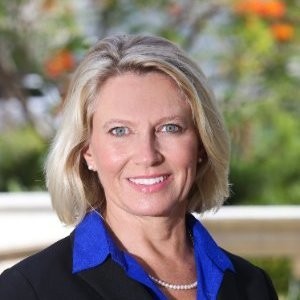
Deborah Watkins is Founder and Chief Disruption Officer of Care Bridge International.
Check out her LinkedIn profile HERE.
Which segment of the industry are you currently involved?
Health Data Analytics, specifically involving bodily injury claims. About 20% of workers comp and auto injury claimants have serious enough injuries to qualify for Social Security Disability Benefits, followed by Medicare benefits. A percentage of those individuals eventually receive Medicaid benefits due to the severity of their injuries and income constraints. There is a real opportunity to ensure these individuals receive quality care to promote their independence, while preserving and maximizing these State & Federal funding resources to improve outcomes, but also to ensure the fiscally responsible use of these funds.
How many years have you been in the Medicaid industry?
On the insurance side, over 18 years, but have been in the healthcare space my entire career.
What is your focus/passion? (Industry related or not)
Dual Eligibles, individuals who receive both Medicare and Medicaid benefits, as these individuals are the most compromised and most vulnerable in our healthcare system. This small subgroup consumes the largest portion of our healthcare dollars having a big impact on our healthcare GDP. Being a small part of the solution in the healthcare delivery and payer systems, is my passion.
What is the top item on your “bucket list?”
To snorkel or scuba dive with humpback whales. I have had an interest in whales since childhood and want to get as close as safely possible.
What do you enjoy doing most with your personal time?
I’m an outdoor girl and enjoy out-of-door activities, particularly trekking in scenic places around the world and downhill skiing.
Who is your favorite historical figure and why?
Abraham Lincoln. He was our President during a very polarizing time in our country’s history during the Civil War and is one of our most respected Presidents. In addition, he experienced tragedy in his own personal life including the loss of his mother at age 9 and the death of a son that led to his wife’s mental health issues, so he was a man familiar with tragedy, yet very resilient. I admire that, because I have a daughter who had an acute head injury at age 9 and suffers with chronic, intractable epilepsy. I understand at a personal level the pain of loss and the challenges caregivers face in navigating a fragmented delivery system and the need for a Medicaid safety net. The story of Honest Abe gives me hope that we can successfully solve our healthcare crisis and reunite.
What is your favorite junk food?
Salt Water Taffy, I love its sticky sweet taste that melts in your mouth; it reminds me of the Boardwalk in Ocean City, MD, not far from where I grew up.
Of what accomplishment are you most proud?
Being an advocate for my daughter, successfully navigating both the healthcare and education systems and adult community resources to help her live as healthy and full a life as possible, to achieve her highest potential despite her afflictions.
For what one thing do you wish you could get a mulligan?
Well, there are many! But for public consumption, I would like to get back the hours of vacation that I worked instead of enjoying that vacation. Time off, disconnecting from the laptop and the stresses of work, is important to maintaining balance and well-being. Vacation is important for restoration. I encourage my own employees to use their time off for that purpose, and stop checking email!
What are the top 1-3 issues that you think will be important in Medicaid during the next 6 months?
I think the most important issues involve, not just figuring out how or how much to fund Medicaid, but how best to manage these funds. Throwing money at a program is not the solution, understanding how best to deliver care to Medicaid beneficiaries in the most cost-effective way to obtain the best possible health outcomes is a complex task, but this is what needs to be done. The use of Data analytics offers a powerful means to learning and understanding and seeing the problems and solutions more clearly. Engaging and gathering Data from all stakeholders including payers, beneficiaries, community leaders, caregivers, providers, facilities, pharmacies, and more to create a better understanding of where the opportunities are to build a more efficient ecosystem is what I believe should be the focus in the next six months. It is the hard, but important work that needs to be done to strip out biases’ and false assumptions that are holding us back from better serving the Medicaid population.
